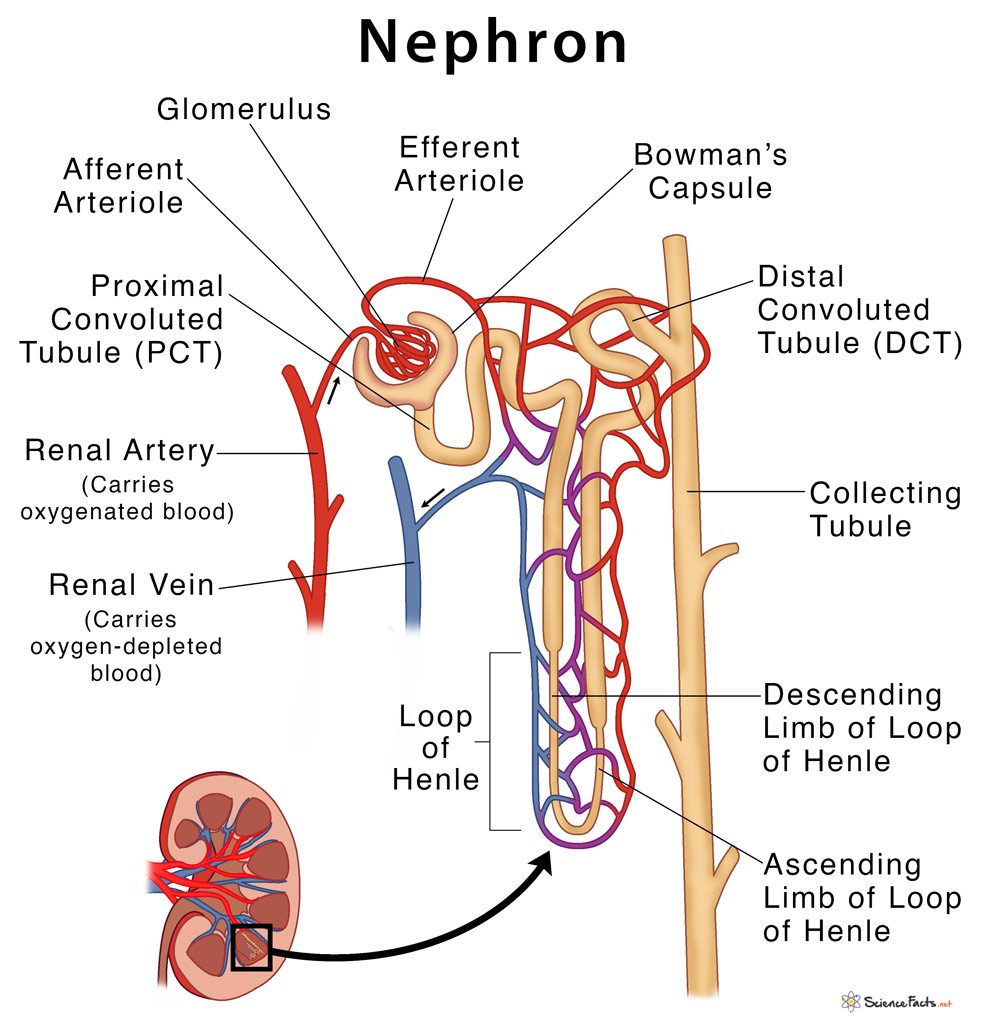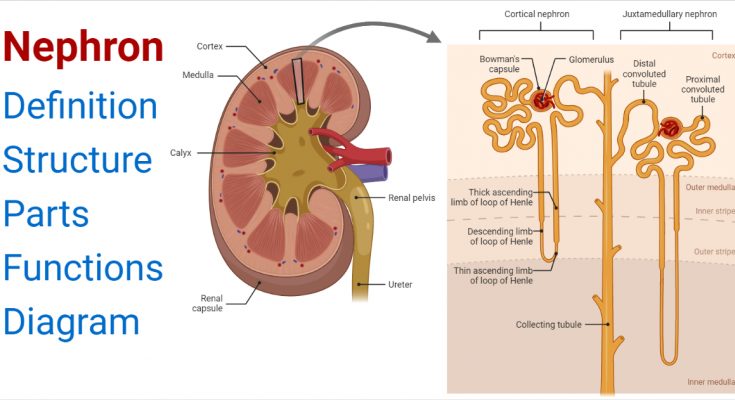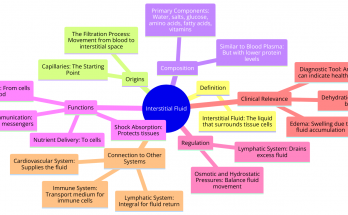What Is Nephron
Nephrons are the structural and functional units of the kidney.
Each kidney contains a large number of tiny filtration units called nephrons(uriniferous tubules).
There are Approximately 2 million nephrons in both the kidneys
Each nephron unit is 4-5 cm long.
Total length of all nephrons together is more than 60 km
This great length provides a huge surface for reabsorption of usable substances, especially water, as the contents move through them.
Structure Of Nephron
The structure of a nephron is diagrammatically shown below

Nephrons are microscopic structures located in the kidney
Kidney has two important regions
- Outer cortex
- Inner medulla
Part of Nephron is present in the outer cortex of the kidney and part of this nephron is in the medulla of the kidney.This Structural position of Nephron plays a significant role in the formation of urine.
Nephron is a tube-like structure whose length varies from 35 to 55 millimeters.
The structure of nephron can be basically divided into two major portions
- The Bowman’s Capsule
- The Renal Tubule
Also Check – 9 Important Functions of Nephron
Bowman’s capsule
- Bowman’s Capsule is a thin-walled (single-cell thick epithelium) cup, closed, folded and expanded into a cup-like structure.
- The space inside the Bowman’s capsule is known as the Bowman’s space.
- The Bowman’s capsule encloses a cluster of blood vessels which is known as the Glomerulus.
- Its hollow internal space continues into the tubule.
- The Bowman’s capsule and the glomerulus together are called Malpighian capsule or Renal capsule.
Glomerulus
- The blood vessel which brings the blood inside the glomerulus is known as the afferent vessel and the blood vessel taking the blood out of the glomerulus is known as the efferent vessel
- The Bowman’s capsule and Glomerulus together constitute the renal corpuscle.
Renal Tubules
The Renal tubules is a long and folded tube like structure that emerges from the Bowman’s capsule at one end and it ends into the duct system of the kidney.
Renal tube is divided into three main parts based on its function
- The Proximal Convoluted Tubule
- The Loop of Henle
- The Distal Convoluted Tubules
Proximal or First Convoluted Tubule (PCT)
- Proximal because it is close to the Bowman’s capsule and convoluted, meaning it is a highly folded structure that helps to increase the overall length of the tubule.
- Proximal Convoluted Tubule is the starting convoluted region of the tubule (“proximal” means nearer, i.e. nearer to the Bowman’s capsule).
- Both the Bowman’s capsule and the proximal convoluted part lie in the cortex of the Kidney .
Also Check – 12 Important Functions of Kidney
The Loop of Henle
- The loop of Henle which is the second main part of the renal tubules.This region forms a loop that is located in the renal medulla.
- The Loop of Henle (Middle U-shaped part ) is shaped like a hair-pin; it is not convoluted.
- The loop of Henle has a descending limb and an ascending limb.
- The ascending limb of the loop of Henle leads into the distal convoluted tubule.
- Loop of Henle runs in medulla to turn back and to re-enter the cortex to continue into the next convoluted region of the tubule.
Distal convoluted tubule (DCT)
- Distal meaning away since it is located far from the Bowman’s capsule as compared to the proximal tubules and convoluted since it is also folded structure to increase the overall length.
- The Distal Convoluted Tubule drains into the collecting duct which also receives input from many other nephrons in the region .
- The collecting duct receives the contents of many Nephron tubules and pours it as urine in the pelvis of the kidney.
- The distal convoluted tubule is located in the cortex of the kidney.


This is perfect blog for students. It explain very well about Nephron, Renal Tubules, and Loop of Henle.